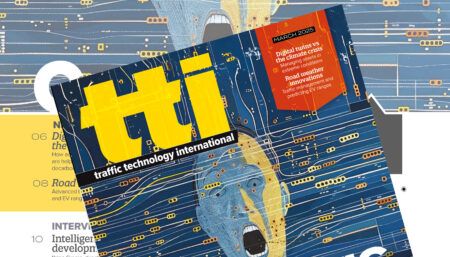The Kansas Department of Transportation (KDOT) has been selected as one of 10 participants in the US Department of Transportation’s Unmanned Aircraft Systems (UAS) Integration Pilot Program, an initiative aimed at shaping the future of drones and their use.
The USDOT’s UAS Integration Pilot Program is an opportunity for state, local and tribal governments to partner with private sector entities, such as drone operators or manufacturers, to accelerate their safe integration and usage across the country.
USDOT and its Federal Aviation Administration (FAA) evaluated 149 applicants for the program and over the next two and a half years, the 10 selectees will collect drone data involving night operations, flights over people and beyond the pilot’s line of sight, package delivery, detect-and-avoid technologies, and the reliability and security of data links between pilot and aircraft.
The data collected from these operations will help the USDOT and FAA craft new enabling rules that allow more complex low-altitude operations, address security and privacy risks, and accelerate the approval of operations that currently require special authorizations.
Announcing the program, US Secretary of Transportation Elaine Chao said, “Data gathered from these pilot projects will form the basis of a new regulatory framework to safely integrate drones into our national airspace. The enthusiastic response to our request for applications demonstrated the many innovative technological and operational solutions already on the horizon.
“Our country is on the verge of the most significant development in aviation since the jet age. This technology is developing so rapidly that our country has reached a tipping point. There are now 1,100,000 drones in operation today, along with 90,000 registered drone operators.”
Although four other state DOTs (North Carolina, North Dakota, Tennessee, and Alaska) are involved in the program, either directly or as partners, KDOT is the only agency that will be studying the use of drones in highway and infrastructure management and operations. With about 140,000 miles (225,300km) of public roads, many in rural areas, Kansas is an ideal location to test the technology, which will benefit not only transportation but also agriculture and many other industries doing business in Kansas. The KDOT program will partner with industry and local agencies to test the use of unmanned aircraft across a variety of applications that will help the state and local transportation departments operate more safely and efficiently.
KDOT and its partners will study several potential drone applications, including assessing weather-affected roads, conducting bridge and infrastructure inspections with minimal impact to traffic, emergency management, highway planning and survey work, and even locating and assisting stranded motorists more quickly.
Kansas Secretary of Transportation Richard Carlson commented, “This is a terrific opportunity to explore new ways to use this technology to reduce the risks to our workers during infrastructure inspections, search and rescue and remote area assessments. This agency strives to be on the cutting edge of transportation technology. We are always looking for better, more efficient ways to help make travel safer for Kansans, visitors and the commercial industries that depend on our roads.”




